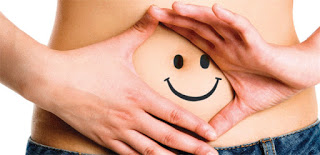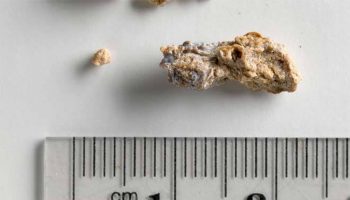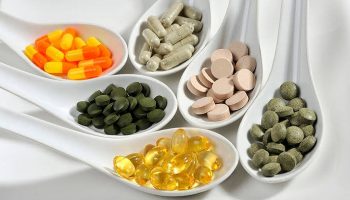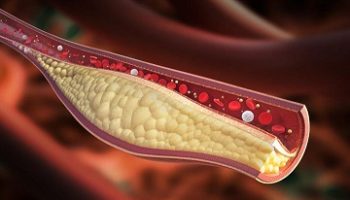PROBIOTICS FOR MEN
Taking a probiotic supplement is one of the best things you can do for your body. The special microorganisms that we call beneficial bacteria dwell in your gut (intestinal tract) where they help maintain a healthful, balanced environment that is critical for overall health and prevention of disease.
Although you can get probiotics from fermented foods such as yogurt, kefir, sauerkraut, and kimchee—and you should enjoy these foods–many men find that taking a high-quality probiotic supplement makes the most sense.
As a dietitian, I usually recommend whole foods for better health (for obvious reasons). So why in this case do I recommend a supplement?
One major reason is you know you are getting large amounts of many different beneficial bacteria. The prebiotic benefit you get from selected foods is helpful, but it feeds the bacteria you have. It doesn’t provide a sufficient amount of active bacteria, nor the varieties that your body and mind need, for optimal function and well-being.
Also, if the foods have been pasteurized or processed, the likelihood of getting a viable prebiotic effect is even less.
- Probiotic supplements, or just “probiotics,” isn’t just one kind of bacteria; Lactobacillus and Bifidobacterium are the primary types, with many different species within each genus and many strains in each species. You want to ingest a variety of probiotics because different strains provide different health benefits.
What are those benefits? Here are some reasons men should take probiotics:
Prevent and Treat Antibiotic-Associated Diarrhea:
A 2010 review from the Cochrane Collaboration concluded that probiotics shorten episodes of acute infectious diarrhea. And in 2011, a Health Canada monograph stated that products containing certain probiotics (such as Lactobacillus rhamnosus GG) help manage acute infectious diarrhea and antibiotic-associated diarrhea.
Help Lower Cholesterol:
(adsbygoogle = window.adsbygoogle || []).push({});
How could beneficial bacteria lower cholesterol? That’s what scientists have been trying to find out. For now, investigators are working on several theories to uncover the mechanisms behind the ability of probiotics to reduce cholesterol and as a result, help lower the risk of cardiovascular disease. Probiotics could be a part of your cholesterol-lowering plan.
Avoid Diabetes:
Although all the evidence is not yet in,studiessuggest the intestinal environment has a significant impact on key factors of diabetes, including insulin resistance, inflammation, and body weight. Therefore, it makes sense to maintain a healthy bacterial balance in the gut by using probiotics. A new study in theBritish Journal of Nutrition, for example, found that probiotic supplementation was effective in preventing diet-induced insulin resistance in adults.
Ward off Side Effects of Chemotherapy:
Use of chemotherapy, especially 5-fluorouracil, is often associated with diarrhea. Men who receive chemotherapy for prostate cancer or other cancers may benefit from using probiotics to help ward off this side effect. A British Journal of Cancer study reported that patients treated with 5-fluorouracil who were also administered rhamnosus GG experienced less stomach problems, less severe diarrhea, and had a shorter stay in the hospital than patients who did not take the probiotic
Probiotics Beat Drugs for Diverticular Disease:
Men who experience uncomplicated diverticular disease (e.g., diverticulitis, diverticulosis) may benefit from taking probiotics. A one-year study compared a standard treatment medication (mesalazine), a probiotic (caseisub sp. DG), and placebo in a double-blind, placebo-controlled study of 210 individuals. The authors found that L. casei was as effective as mesalazine and that the combination of the two worked best.
Bulletproof your Immune System:
Numerous probiotic strains have been shown to boost immune function and help prevent common infections, such as the common cold and flu. In a recent systemic review and meta-analysis, the authors reported that among children and adults with acute respiratory tract infections, use of Lactobacillus and Bifidobacterium strains, compared with placebo, was associated with fewer days of sickness, fewer number of days of illness per person, and fewer days missed from school or work. Another study found that use of probiotics (plantarum and L. paracasei), when compared with placebo, reduced the risk of acquiring common cold infections and significantly reduced symptoms.
Reduce Symptoms of Irritable Bowel Syndrome:
This gastrointestinal disorder is common in men, but males tend to not seek medical treatment as often as women do. Probiotics could be the answer. Beneficial bacteria can help reduce symptoms of irritable bowel syndrome, including diarrhea, constipation, bloating, gas, and abdominal pain. For example, a recent double-blind, placebo-controlledtrialshowed that a multi-strain probiotic supplement resulted in significant improvement in symptoms over a 12-week period.
Develop a Lean Healthy Body:
Some strains of probiotics have been associated with dropping excess fat. Specifically, use of Lactobacillus gasseri resulted in a loss of 8.5 percent of belly fat mass over a three-month period in onestudyof more than 200 individuals, and the fat returned within four weeks when they stopped taking the supplement. Other research has shown that rhamnosus and Bifidobacterium lactis are beneficial for obesity prevention and weight loss
Eradicate Ulcers:
Helicobacter pylori has been linked to the development of ulcers, and probiotics can tackle these bacteria. A number of studies, including a new review in Helicobacter, suggest probiotics can be effective in reducing pylori infection and the occurrence of ulcers.
When shopping for a high-quality probiotic supplementyou want a supplement that contains a range of species that have been well-researched and can help restore and maintain a balanced environment of bacteria in your gut for optimal health.
Oral Health:
In addition to the microflora that reside in the large intestine, bacteria populate the mouth as well. An increasing number of probiotic lozenges and gums are thus being promoted for oral health—for example, to reduce periodontal disease, throat infections and bad breath. There’s preliminary evidence that certain strains may have some benefits, but commercial products may not have the same strains and formulations as those tested in published studies. Don’t expect these products to replace brushing and flossing.
Benign Prostatic Hyperplasia:
An enlarged prostate, or benign prostatic hyperplasia, affects about one-third of men by the time they reach age 50 and 70 percent of males by age 70. The condition is not caused by bacteria, but that does not mean probiotics cannot be helpful in managing this common disease. In fact, one of the most important things you can do to help prevent BPH is to keep your immune system functioning optimally by taking high-quality probiotics on a regular basis. A well-balanced bacterial environment in the gut helps ward off inflammation and supports a healthy prostate gland.
For example, daily use of a combination of probiotics can boost immune system function, which can help the body fight BPH symptoms. Urinary tract infections frequently occur along with BPH, and a steady course of probiotics can assist in preventing and managing such infections.
If BPH should develop, probiotics can be part of a proactive management plan. Restoring the bacterial balance in the gut will enhance immune system function and help fight inflammation.
Prostate Cancer:
Although the exact causes of prostate cancer are not known, there are several theories, including a role for genetics and various environmental causes. One theory is that inflammation plays a part, and if this is true then probiotics can be helpful in prostate cancer prevention. Inflammation can damage DNA, which in turn can cause cells to turn cancerous. In addition, probiotics support healthy immune function, which is a safeguard against development of cancer.
For prostate health, L. acidophilus has been used to determine its effect on the percentage of volume change of the rectum (PVCR) in men with prostate cancer who are managed with radiation therapy. PVCR is an important factor in men who receive this type of prostate cancer treatment because it has an effect on prostate movement and position and thus the accuracy and the effectiveness of the radiation treatment.
Other uses:
Many other claims are made for probiotics—that they lower blood pressure and cholesterol, alleviate skin conditions like eczema, treat ulcers and urinary tract infections, improve vaginal health, prevent colon cancer, ease anxiety and depression and ward off traveler’s diarrhea. Good evidence to support these claims is lacking.
Recent Research:
Lately, probiotics have become pretty well-known in media health reports as crucial bacteria and yeasts that thrive in, and benefit, your digestive system. Unlike the bad bacteria that can cause colds and other diseases, probiotics are the good guys; the beneficial bacteria that are necessary to maintaining good health.
Probiotics help treat irritable bowel syndrome, infectious diarrhea, (potentially) some skin conditions, as well as aiding oral health. They’re often found in Greek yogurts and can also be ingested in supplement form to help maintain balance in your gut. While plenty of research shows their value in keeping your gut healthy, there hasn’t been enough research looking into their overall health benefits. But now scientists are beginning to grasp what those are.
A new study out of the Leiden Institute of Brain and Cognition at Leiden University in the Netherlands suggests that probiotics may actually aid in improving mood. They might be a good way to fight anxiety or depression, or simply make you feel better after a bad day.
The researchers examined 40 healthy young adults who had no mood disorders. Half of them consumed a powdered probiotic supplement every night for four weeks. The probiotic supplement was called Ecologic Barrier, and contains eight types of bacteria, such as Bifidobacterium, Lactobacillus, and Lactococcus (these three types of bacteria that have been shown in the past to mitigate anxiety and depression). The other half of the participants took a placebo, although they thought they were taking probiotics.
The people who took probiotic supplements began to see improvements in their moods; they reported less reactivity to sad moods than those who took placebos. In other words, the people who took probiotic supplements were better able to overcome sad moods than the others, and thus had fewer depressive thoughts following bouts of sadness.
The Second Brain and the Gut-Brain Connection:
Scientists have announced that humans have two brains, andprobioticsplay a significant role in both of them. The second brain is actually known as the enteric nervous system and is found in your gut. More specifically, it is made up of groups of neurons living in the walls of the nine meters that make up your gut, from your esophagus to your anus. This second brain contains more neurons than your spinal cord or your peripheral nervous system. In fact, the second brain contains 95 percent of the serotonin in your body (the neurotransmitter also in your other brain that is responsible for mood and some behaviors). The two brains communicate by sending signals via the vagus nerve, the super highway that runs between the head brain and the stomach. The second brain contains more than two dozen other neurotransmitters also present in the head brain.
Research thus far into the gut-brain relationship has suggested that taking probiotics can have a positive effect on behavior, mental outlook (i.e., depression, anxiety), and brain function. One such study was done in a group of 36 healthy women who were divided into three groups. One group consumed yogurt containing probiotics for 4 weeks, one ate yogurt without probiotics, and one was a control. The probiotics included L. bulgaricus, L. lactissub sp Lactis,B. animal is sub sp Lactis, and S. thermophiles.
“…taking probiotics can have a positive effect on behavior, mental outlook (i.e., depression, anxiety), and brain function..”
After undergoing magnetic resonance imaging (MRI) of the brain and participating in emotion recognition tests, the researchers found that women who regularly ate yogurt with probiotics showed positive changes in brain function related to emotions and sensory processing.
As a group of experts have noted in a series of recent articles in Gut Pathogens “despite the advances in the area of gastrobiological psychiatry, it becomes clear that there remains an urgent need to explore the value of beneficial microbes [i.e., probiotics] in controlled clinical investigations.”
Side effects:
Probiotics are considered safe overall for healthy people; short-term side effects may include mild gas and bloating. But keep in mind that if they do have physiological effects, these may not always be good effects. Some may, at least in theory, overstimulate the immune system or adversely affect metabolic pathways such as carbohydrate metabolism. If you are immune-compromised, have certain bowel problems or are seriously ill in other ways, avoid probiotics unless your doctor has okayed their use. Probiotics should be used cautiously by pregnant women, infants and young children and never given to premature infants.
Source:
Steenbergen L, Sellaro R, van Hemert S, Bosch J, Colzato L. A randomized controlled trial to test the effect of multispecies probiotics on cognitive reactivity to sad mood.Brain, Behavior, and Immunity, 2015.
previous article
PROTECT YOUR PROSTATE
next article
MENSTRUAL CRAMPS
The author Prince
Hi, I’m Prince.. a registered Dietitian, an avid reader and a passionate writer. I hope you enjoy my articles as much as I enjoy writing them







